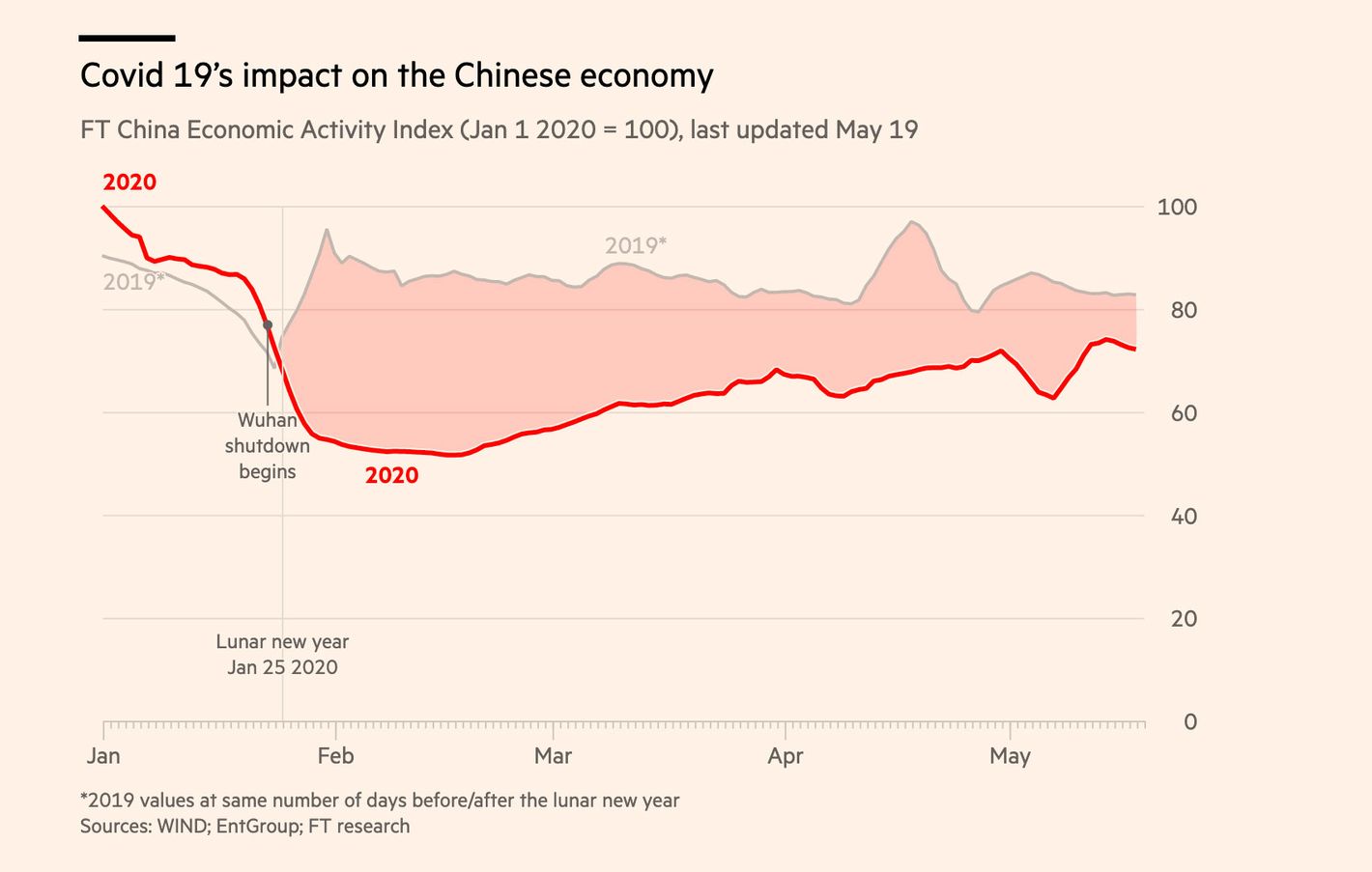As many North American businesses move to reopen with social distancing this month, China offers a glimpse of why business-as-usual is unlikely to follow.
After a strict lockdown bent the spread of COVID-19 in April, China has reopened schools and businesses and was operating at 87% of typical output on May 12, according to the Trivium National Business Activity Index. However, as shown below, the nation’s economic activity remains well below January 2020 and year-ago levels.
 North America has lost more than 33 million jobs in just the last two months and regrowing employment is likely to take many years. It took a decade (2009 -2019) to recover the 22 million US jobs lost in the 2007-08 recession, and much of that came from the service sectors which are most impaired in the present downturn.
North America has lost more than 33 million jobs in just the last two months and regrowing employment is likely to take many years. It took a decade (2009 -2019) to recover the 22 million US jobs lost in the 2007-08 recession, and much of that came from the service sectors which are most impaired in the present downturn.
Economist Nouriel Roubini explains that the west should prepare for a slow, lacklustre “U-shaped” economic rebound in the pandemic’s immediate aftermath, followed by an “L” decade as spending and investment is suppressed by the weight of accumulated debts, an ageing population and a focus on saving. See Why our economy may be headed for a decade of depression:
“So when unemployment benefits expire, lots of people aren’t going to have any income. Those who do get jobs are going to work under more miserable conditions than before. And people, even middle-income people, given the shock that has just occurred — which could happen again in the summer, could happen again in the winter — you are going to want more precautionary savings. You are going to cut back on discretionary spending. Your credit score is going to be worse. Are you going to go buy a home? Are you gonna buy a car? Are you going to dine out? In Germany and China, they already reopened all the stores a month ago. You look at any survey, the restaurants are totally empty. Almost nobody’s buying anything. Everybody’s worried and cautious. And this is in Germany, where unemployment is up by only one percent. Forty percent of Americans have less than $400 in liquid cash saved for an emergency. You think they are going to spend?
Economist Daniel Lacalle expounds on recovery shapes further in this 6-minute video segment.


